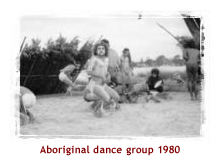|
Native title 'Native title' describes the rights and interests of Aboriginal and Torres Strait Islander people in land and waters, according to their traditional laws and customs. Unlike freehold titles or leases, native title is not granted by governments and may exist in places where indigenous people have maintained a link with their country. Native title rights may include the possession, use and occupation of traditional country, the right of access to land, and the right for native title holders to participate in decisions about how others use their traditional land and waters.  In 1992 the High Court decision in the Mabo case recognised for the first time the traditional native title rights of Australia's indigenous people. The Court rejected the notion of terra nullius and held that native title holders enjoyed the protection of the Racial Discrimination Act 1975. In 1992 the High Court decision in the Mabo case recognised for the first time the traditional native title rights of Australia's indigenous people. The Court rejected the notion of terra nullius and held that native title holders enjoyed the protection of the Racial Discrimination Act 1975.These decisions meant that native title had to be accommodated within Australia's land management systems. Governments wanting to obtain title rights over an area would have to compensate the native title holders. Indigenous peoples' rights would have to be treated in the same way as the rights of other title holders. The federal government responded to the Mabo ruling with the Native Title Act 1993 and the Western Australian State Government with the Land (Titles and Traditional Usage) Act 1993. Each took a fundamentally different approach to the issue, resulting in another High Court case in which the State Government challenged the Commonwealth legislation. In this case the High Court rejected the State Government's argument that native title in Western Australia was extinguished upon the establishment of the colony. It held that native title was extinguished only parcel by parcel, as interests in land were granted or land was appropriated for use by the Crown in a manner inconsistent with the continued right to enjoy native title. The High Court also ruled that the Commonwealth Parliament had the power to legislate for native title under section 51 of the Constitution, the section which enabled the Commonwealth to make laws with respect to 'the people of any race for whom it is deemed necessary to make special laws.' Similarly it dismissed Western Australia's argument that the Native Title Act withdrew legislative power from the States. The Commonwealth could completely control the extinguishment or impairment of native title, while a State law could only extinguish or impair native title if it complied with the Native Title Act. The other landmark High Court ruling in regard to native title was the Wik decision. In 1996 a majority of the High Court found that the grant of certain pastoral leases by the Crown in Queensland did not confer exclusive possession of the leased areas on the grantees, and therefore did not necessarily extinguish native title rights of the Wik people. In some cases, native title rights may have survived the grant of pastoral leases and co-exist with the rights conferred on the grantee by the lease and the Act under which the lease was granted. The Wik decision had particular relevance to the Western Australian pastoral industry. As a result of the Mabo decision, the National Native Title Tribunal was set up under the Native Title Act 1993 to provide administrative processes to deal with native title applications referred to it by the Federal Court. The Native Title Tribunal assists in negotiations about proposed mining tenements, the compulsory acquisition of land by governments for transfer to third parties, indigenous land use agreements and pastoral lease access agreements. With the operation of the Commonwealth native title legislation many claims have been made in Western Australia by Aboriginal groups. With the assistance of the Native Title Tribunal some agreements have already been reached. Yet native title, and how to respond to it, remains a key issue in Commonwealth/State relations. |
Please note: The content on this website is made available for archival purposes and may not meet the State Library of Western Australia's current standards for web accessibility, mobile device compatibility, historical accuracy and cultural sensitivity.